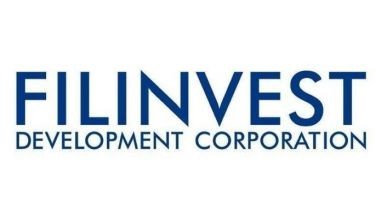Cautiously optimistic

Many companies and businesses have found themselves ill-prepared for a crisis of this proportion.
In an article for Arthur D. Little Global, companies in general are still reluctant to invest in controls for catastrophic events that are already recognized, but may or may not happen in the medium term.
One reason, the article said, is that people learn from their own history, but not well from someone else’s. People need to feel it to believe it and so the countries that were prepared for COVID-19 were the ones that had been through SARS.
Another reason is the so-called boiling frog problem, a metaphor that suggests that a frog may fail to jump out of a pan of water as it slowly heats up. The article explained that the problem refers to the poor ability of humans to take action in the case of threats that build gradually compared to those that appear suddenly. Most organizations, the article noted, have not done enough to develop clear thresholds for risk tolerance or risk appetite, meaning, there are no clear criteria to trigger action in the case of a gradually deteriorating situation that causes a risk to reach a predetermined threshold. And without these clear thresholds, organizations tend, like the frog, to do nothing until it’s too late.
In another article posted in grantthorton.global, it was stressed that by remaining agile and alert, business leaders can take steps to build resilience into their operations and mitigate the impact of COVID-19.
It mentions the importance of cashflow and insurance, of business continuity plans and making sure that companies have sufficient resources and supplies to outlast the pandemic, of being proactive and engaging with customers, suppliers and stakeholders early.
In the case of publicly listed Roxas and Co., a culture of innovation and resilience has allowed it to weather the health crisis and inch closer towards recovery.
According to RCI chief financial officer Edgar Arcos, COVID-19 is and continues to be a human tragedy, but it has tested their resilience and brought out the creativity across their teams.
Arcos pointed out that to say that 2020 was a difficult year would be an understatement, as revenues declined by 36 percent year-on-year on the back of the pandemic and the Taal Volcano eruption that impacted the operations of its hotels and real estate units.
He explained that the first order of the day was to protect RCI’s people and partners, and that their first learning was how to prioritize people, customers, suppliers and business partners, and shareholders in that order. In addition, moving resources to address the urgent requirements of their employees ensured that the company was able to secure their health and wellness, he said.
RCI is the publicly listed holding company of the Roxas Group. Its main holdings are raw real estate in Nasugbu, Batangas, sugar-related assets and businesses held through Roxas Holdings Inc. (RHI) -- which is another publicly listed firm, and real estate development through Roxaco Land Corp.
RCI reported that its full year losses last year stood at P1.15 billion primarily due to the lockdowns that led to the temporary closure of Anya Resort Tagaytay and Go Hotels in Manila and the Roxas Sigma Agriventures Inc. (RSAI) coconut processing plant in Tupi, South Cotabato.
Anya, however, was able to recover in the last quarter of 2020 and ended the year strong as guests from Metro Manila patronized its luxury rooms and food outlets, Arcos said.
Go Hotels, on the other hand, made a quick pivot as quarantine facilities for returning overseas Filipino workers starting in mid-April last year, with occupancy levels recovering up to 50 to 70 percent for the rest of 2020.
While the coconut manufacturing plant was not spared from the impact of COVID-19 as social distancing and community lockdowns affected worker movement and plant manpower capacity, Arcos said the facility revisited process flows to maintain output efficiencies.
Meanwhile, RCI’s real estate unit consolidated its asset portfolio and continued to work with developers and joint venture partners to prepare for the rebound this year.
Arcos said RCI also restructured around P2.6 billion of debt and availed of concessions under Bayanihan 1 and 2 to generate additional cash flows and sustain businesses during the recession and extended COVID-19 period.
RCI’s CFO said they are cautiously optimistic of recovery in 2021, noting that the imposition of further restrictions in late March to April was proof of the unpredictability of the recovery and derailed the momentum that the company has built in the last quarter of last year and the first quarter of this year.
Across the group, revenues from January to March this year stood at P535 million, six times higher than the same period last year, mainly due to raw land sales and the recovery of hotel and coconut product sales.
The RCI officials likewise said that the country’s vaccination progress will be a key enabler in the return of consumer confidence and eventually spending and investment. He said that the pace of the transition is unclear so they have planned scenarios for a swift or slow recovery, adding that they are gearing for a turnaround, but are preparing contingencies for further disruptions.
Incidentally, the group’s Anya Resort Tagaytay, a project of Roxaco Land, has reopened for staycationers
Frequented by guests seeking absolute privacy, Anya is said to be the crest for refined luxury, with secluded villas and tranquil surroundings. Its alluring and comfortable suites also provide an idyllic escape from frantic city life.
Resort general manager Mikel Arriet said that to ensure the safety of both guests and its associates, the resort redefines customer experience through its “Your Safe Sanctuary” protocols. The project reviewed the resort’s operations and structured lines of action to respond to the needs of the guests in the new social reality prompted by the pandemic.
According to Arriet, the Tagaytay resort elevates the essentials, with focus on a safe stay, exceptional personal service, great food, and vibrant spaces for guests. An encapsulating experience is thoughtfully crafted through a designated ‘Anya Experience Assistant’ that asks about guests’ preference and requests before arrival up until departure.
With stern implementation of health and safety protocols from the arrival through the rooms and restaurants, heightened sanitation and disinfection, and a contactless communication service ‘Ask Anya’ for food and beverage orders, restaurant reservations, turn-down amenity, and fitness center appointment, the resort covers all aspects to guarantee maximum security for guests and associates.
Anya was granted a Staycation Certificate by the Department of Tourism to accept guests between 18 to 65 years of age for leisure purposes.
For comments, e-mail at mareyes@philstarmedia.com
- Latest
- Trending

























